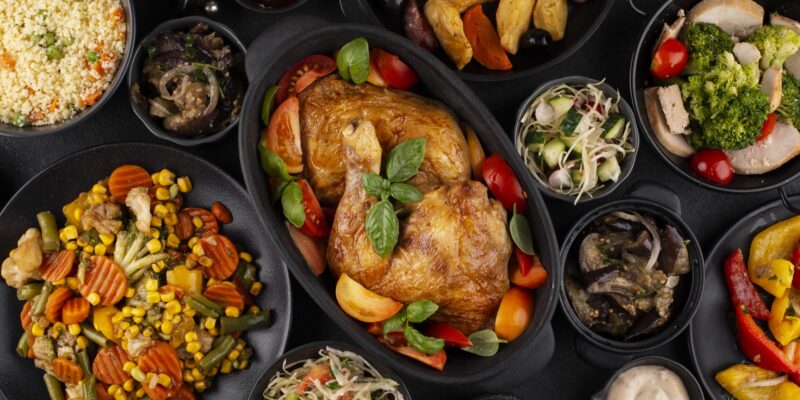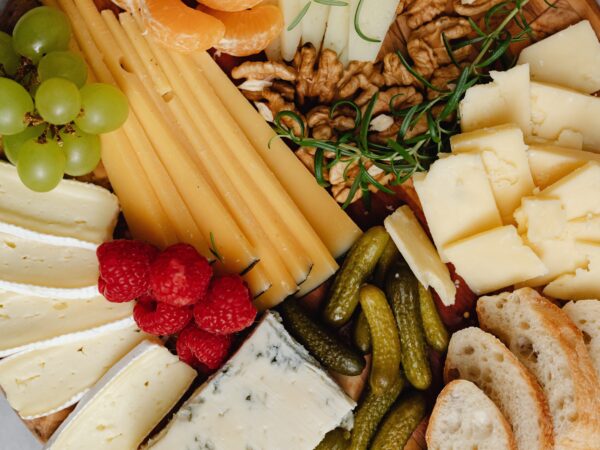Food has been integral to human existence and its history dates back to the earliest of civilizations. The role of food as an essential part of life has remained constant through the ages, and its importance has never waned.
Food has shaped human culture, traditions, economies, and even social hierarchies. The history of food is a fascinating subject that spans across thousands of years and is filled with remarkable stories of innovation, discovery, wars, and societal trends.
In this article, we will take a walk through the history of food, tracing back to its origins and exploring the various trends and innovations that have transformed the way humans consume and produce food.
Early Beginnings:
The history of food dates back to the early humans who roamed earth thousands of years ago. The early humans were nomadic and their diet consisted of meat that they hunted and gathered vegetables, fruits, and roots. They adapted to their surroundings and consumed whatever was available to them.
These early humans had limited tools and techniques to catch animals or even gather food, which meant that their diet was limited to whatever they could find.
Later on, the agricultural revolution changed the way humans consumed food. The agricultural revolution was the turning point in human history, where people began cultivating crops and rearing animals.
This revolution took place around 10,000 BC, and it was a significant milestone in the history of food. With this new-found ability to grow crops, humans could settle down and form communities, which led to the development of civilizations.
With the advent of agriculture, people’s diets changed drastically. They started consuming grains, vegetables, fruits, and dairy products.
The development of agriculture brought about a significant change in human society as it led to specialization and the emergence of new professions. The farmers and the bakers were some of the first to become a part of this new economy.
The Spread of Food Across Continents:
With the growth of civilizations, the spread of food across continents became more common. The discovery of new lands, and the exploration of the sea expanded the variety of food products available to humans.
The trade of spices, herbs, and other food products became more frequent with the development of trade routes. The Silk Road and the Spice Route were some of the most famous trade routes that existed in ancient times.
The trade of food products did not just bring new flavors to different lands, but it also led to the spread of crops and vegetables. That is how potatoes were introduced to Europe from South America, and how tomatoes became a fundamental ingredient in Italian cuisine.
Without this trade, it would have taken many more years for humans to have the variety of food products that they have access to today.
The Evolution of Cooking:
Cooking techniques and recipes have evolved over thousands of years. Humans were initially reliant on fire to cook their food, but as time progressed, more sophisticated cooking techniques emerged.
The Greeks and Romans, for instance, were among the first civilizations to recognize the art of cooking. They had professional chefs who cooked meals for the rich and famous.
In ancient China, cooking was taken quite seriously, and it was considered as an important skill to possess. They had various techniques that included stir-fry, deep-fry, and steaming. Apart from that, they were also the first to use chopsticks as utensils for eating.
The French, on the other hand, pioneered modern culinary techniques. They introduced the world to the concept of haute cuisine, which is essentially the art of cooking and presenting food with sophistication and style.
Modern Food Trends and Innovations:
The 20th century witnessed a significant transformation in the food industry. Advances in technology, transportation, and communication led to the mass production of food, which made it more affordable and readily available to the masses.
However, as the food industry grew, there were concerns around the nutritional value of the food being produced. This led to the rise of food regulations and an increased focus on food science.
The processed food industry has emerged as a significant trend in modern times. These foods are essentially manufacture foods that have undergone significant alterations in their original form.
Processed foods include canned foods, frozen foods, and even fast food. Processed foods have grown enormously in popularity due to their convenience and affordability.
The industry has also witnessed a growing trend towards organic foods. Organic foods produces without the use of pesticides, synthetic fertilizers, or genetically modified organisms.
The Future of Food:
Looking ahead, there are many emerging trends in the food industry that promise to transform the way we eat. Environmental concerns are increasingly shaping the way people are producing food, with an emphasis on sustainable agriculture and reducing carbon footprints.
Precision agriculture, robotics, and vertical farming are cutting-edge technologies that are transforming the agriculture industry. They promise to increase crop yields, reduce water consumption, and reduce labor costs.
Conclusion:
In conclusion, the history of food is a fascinating subject that has shaped human civilization in many ways. The evolution of cooking techniques and the rise of mass production have been instrumental in transforming the food industry.











